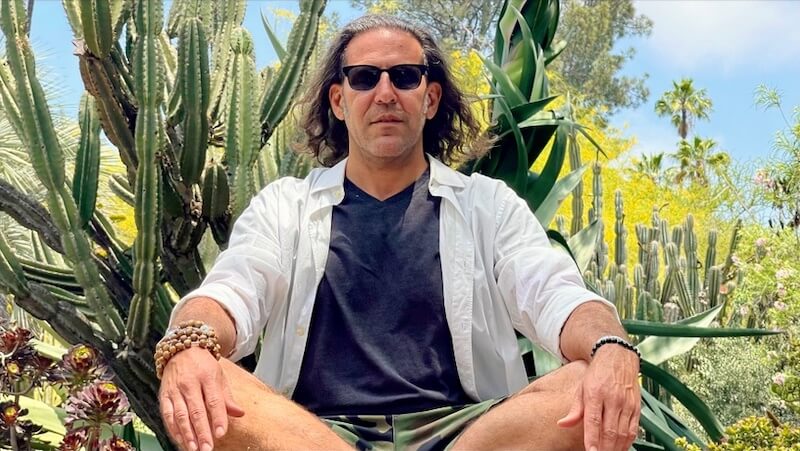
Everything from getting a good night’s sleep to a deep meditation practice keeps us high on happiness, while other personal choices can dismantle or keep us from being happy. Yes, there is such a thing as a happiness spectrum, and you have agency to choose where you want to be on it, according to Ira Israel, psychotherapist and author of Beginner’s Guide to Happiness.
Part of our toolkit for experiencing more highs than lows lies in our ability to tackle short-term thinking — aka worrying — and keep our energies on the long-term narrative we would like to manifest.
Israel will guide an on-campus workshop, Cultivating Authentic Happiness, July 12-16, 2021, featuring meditation, yoga, and unseating your mind’s “negativity bias.” He spoke recently with Esalen’s Christine Chen about childhood, our capacity for happiness, and the top two things that can hold us back from being happy.
Christine Chen: Why do so many people seek happiness instead of being happy? Is that a thing?
Ira Israel: Ironically, we live in a country where many people have their basic physiological needs met and can thus spend their time exercising their inalienable right to pursue happiness. However, as Mick Brown so astutely states that happiness cannot be pursued. You do not find happiness; happiness finds you. It is not an end in itself, but a byproduct of other activities, often arriving when it is least expected. So, when I am at Esalen, I teach all of those scientifically proven “other activities” that provide the richest soil for happiness blooming.
CC: Is there a happiness spectrum?
II: Absolutely! Everyone has a “happiness spectrum” and even if there are deviations from that spectrum due to say winning the lottery or being in a horrible accident, according to Martin Seligman’s Positive Psychology and Sonja Lyubomirsky’s extensive research, people’s happiness spectrums remain relatively consistent.
There are tools that keep us at the higher ranges of our spectrums, such as eating and sleeping correctly, having secure loving intimate relationships, and committing to practices such as meditation and yoga; and, there are tools that keep us at the lower ranges of our spectrums such as drinking a bottle of gin for breakfast, playing video games for 80 hours straight, mouthing off to police officers, envying others, being resentful, etc. My class empowers students to choose the most propitious tools.
CC: What is authentic happiness?
II: As a species, human beings are rather myopic. I study consciousness and the systems of thought that influence how you and I think. I like the quote, “Money makes us creatures of time.” We all have a slew of monthly bills — mortgage, rent, utilities, car payments, credit cards, student loans, phone, Internet, etc. — and I try to get students to think more long-term, to get them to transcend the worrying and anxiety that often accompanies short-term thinking. If we envision the optimum trajectories of our lives and create a narrative of who we are and how we became who we are, then we can make tweaks and adjustments so that our lives are more congruent with our ideals. One of the goals of my book and my workshop is to help people mitigate hypocrisies and be more authentic.
CC: What are the top two things that hold many of us back from being happy?
II: First, blunt relationship tools or the inability to be vulnerable. Second, being reactive or lacking compassion.
CC: How much of our ability to be happy is rooted in childhood? Old patterns? Environment?
II: I would say (facetiously), 100% on our childhood, 100% on old patterns, and 100% on our environment.
It’s like the old joke. A guy is searching frantically near a street light and someone asks him what he’s doing.
“I’m looking for my keys,” he tells the other person.
“Where did you lose them?” the inquisitor asks.
“Over there in the bushes.”
“Then why are you looking for them over here?”
“Because that is where the light is!” the man replies.
It depends where we look. Are we looking in the right place or do we just want to simply blame someone or something else? Actually my philosophy is to eliminate blame and take responsibility for our emotional experiences. I believe that it’s an empowering practice and powerful method of transformation for people to reframe whatever depression and anxiety they experience as being caused by maladaptive thinking. Because, once you realize that your thinking is the cause of many of your issues, then you can try to practice shifting your thinking for a solution.
CC: What’s a negativity bias? How do we overcome it?
II: I believe that our mind’s primary job is to try to stave off potential future traumas. Our minds assimilate each childhood trauma and say, “Wow, that was really awful, humiliating, painful. I’m never going to let that happen again. I’m going to become X (develop a solid defense mechanism to inhibit that trauma from happening again).” Thus, by the time most of us are 30 years old, we’re essentially a bundle of defense mechanisms walking around trying to avert unpleasant experiences and cling to pleasant experiences. This is inauthentic.
We need to ameliorate (not eliminate) our prejudices so that we can be vulnerable and inspire the people around us to do the same so that we can have secure relationships based on mutual trust and love, rather than on complementary psychological and emotional dysfunctionalities.
CC: What methodology do you suggest to tackle this personal work?
II: Congruence. Decide who you want to be and what type of life you wish to lead, have the tools to facilitate that being and that life, and have the personal integrity to abide by your commitment to those long-term ideals.
CC: What is unique about this time (transitioning out of the pandemic) and our ability to be happy?
II: “Mirror neurons do not fire via text messages,” and “One hug equals one million Instagram LIKEs,” I state in my book. We need to re-learn how to connect in person after this last year spent in front of shiny screens. That’s one thing about Esalen that I love — chatting in the lodge or at the baths with amazing people. I always say, “It’s difficult to be an asshole when you’re naked.” My course helps people shed their fears so that they feel comfortable stripping down and being authentic.
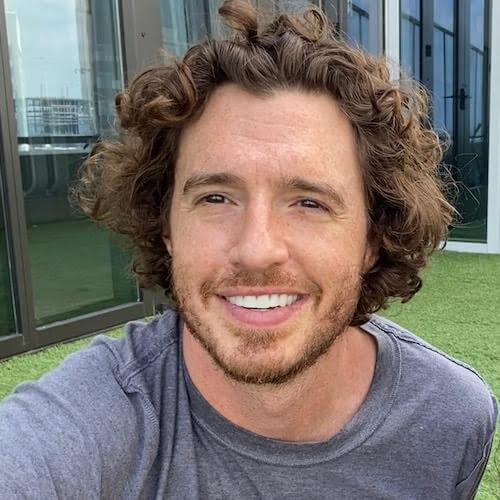
“Remembering to be as self compassionate as I can and praying to the divine that we're all a part of.”
–Aaron
“Prayer, reading, meditation, walking.”
–Karen
“Erratically — which is an ongoing stream of practice to find peace.”
–Charles
“Try on a daily basis to be kind to myself and to realize that making mistakes is a part of the human condition. Learning from our mistakes is a journey. But it starts with compassion and caring. First for oneself.”
–Steve
“Physically: aerobic exercise, volleyball, ice hockey, cycling, sailing. Emotionally: unfortunately I have to work to ‘not care’ about people or situations which may end painfully. Along the lines of ‘attachment is the source of suffering’, so best to avoid it or limit its scope. Sad though because it could also be the source of great joy. Is it worth the risk?“
–Rainer
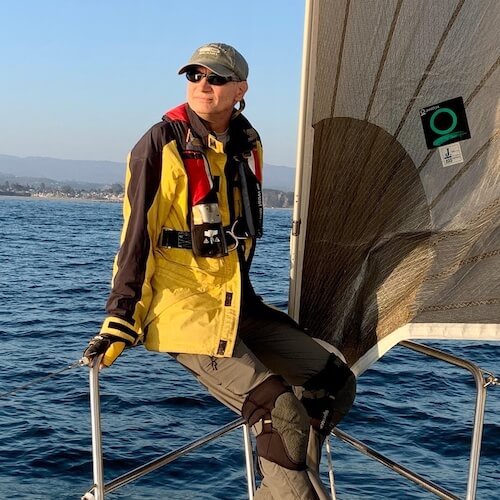

“It's time for my heart to be nurtured on one level yet contained on another. To go easy on me and to allow my feelings to be validated, not judged harshly. On the other hand, to let the heart rule with equanimity and not lead the mind and body around like a master.”
–Suzanne
“I spend time thinking of everything I am grateful for, and I try to develop my ability to express compassion for myself and others without reservation. I take time to do the things I need to do to keep myself healthy and happy. This includes taking experiential workshops, fostering relationships, and participating within groups which have a similar interest to become a more compassionate and fulfilled being.“
–Peter
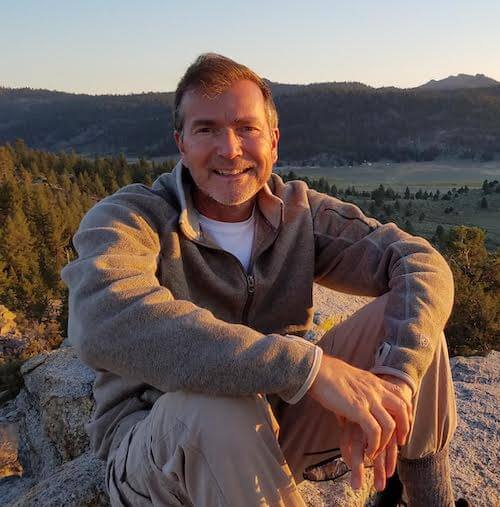
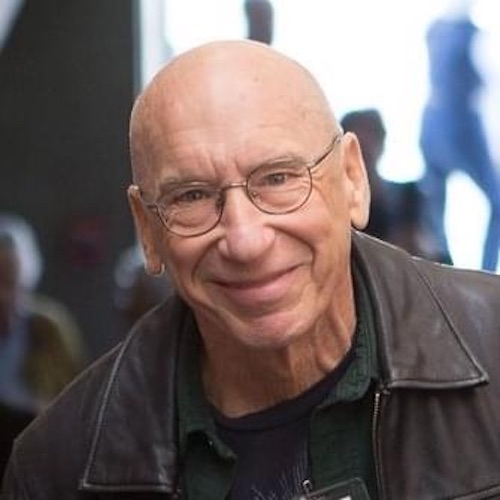
“Self-forgiveness for my own judgments. And oh yeah, coming to Esalen.”
–David B.
“Hmm, this is a tough one! I guess I take care of my heart through fostering relationships with people I feel connected to. Spending quality time with them (whether we're on the phone, through messages/letters, on Zoom, or in-person). Being there for them, listening to them, sharing what's going on with me, my struggles and my successes... like we do in the Esalen weekly Friends of Esalen Zoom sessions!”
–Lori

“I remind myself in many ways of the fact that " Love is all there is!" LOVE is the prize and this one precious life is the stage we get to learn our lessons. I get out into nature, hike, camp, river kayak, fly fish, garden, I create, I dance (not enough!), and I remain grateful for each day, each breath, each moment. Being in the moment, awake, and remembering the gift of life and my feeling of gratitude for all of creation.”
–Steven
“My physical heart by limiting stress and eating a heart-healthy diet. My emotional heart by staying in love with the world and by knowing that all disappointment and loss will pass.“
–David Z.
Today, September 29, is World Heart Day. Strike up a conversation with your own heart and as you feel comfortable, encourage others to do the same. As part of our own transformations and self-care, we sometimes ask for others to illuminate and enliven our hearts or speak our love language.
What if we could do this for ourselves too, even if just for today… or to start a heart practice, forever?
Learn more about Ira Israel and register for his workshop, Cultivating Authentic Happiness, July 12-16, 2021.
Christine Chen is a two-time Emmy winning journalist, best-selling author, California native, and senior teacher of yoga and Ayurveda.

Everything from getting a good night’s sleep to a deep meditation practice keeps us high on happiness, while other personal choices can dismantle or keep us from being happy. Yes, there is such a thing as a happiness spectrum, and you have agency to choose where you want to be on it, according to Ira Israel, psychotherapist and author of Beginner’s Guide to Happiness.
Part of our toolkit for experiencing more highs than lows lies in our ability to tackle short-term thinking — aka worrying — and keep our energies on the long-term narrative we would like to manifest.
Israel will guide an on-campus workshop, Cultivating Authentic Happiness, July 12-16, 2021, featuring meditation, yoga, and unseating your mind’s “negativity bias.” He spoke recently with Esalen’s Christine Chen about childhood, our capacity for happiness, and the top two things that can hold us back from being happy.
Christine Chen: Why do so many people seek happiness instead of being happy? Is that a thing?
Ira Israel: Ironically, we live in a country where many people have their basic physiological needs met and can thus spend their time exercising their inalienable right to pursue happiness. However, as Mick Brown so astutely states that happiness cannot be pursued. You do not find happiness; happiness finds you. It is not an end in itself, but a byproduct of other activities, often arriving when it is least expected. So, when I am at Esalen, I teach all of those scientifically proven “other activities” that provide the richest soil for happiness blooming.
CC: Is there a happiness spectrum?
II: Absolutely! Everyone has a “happiness spectrum” and even if there are deviations from that spectrum due to say winning the lottery or being in a horrible accident, according to Martin Seligman’s Positive Psychology and Sonja Lyubomirsky’s extensive research, people’s happiness spectrums remain relatively consistent.
There are tools that keep us at the higher ranges of our spectrums, such as eating and sleeping correctly, having secure loving intimate relationships, and committing to practices such as meditation and yoga; and, there are tools that keep us at the lower ranges of our spectrums such as drinking a bottle of gin for breakfast, playing video games for 80 hours straight, mouthing off to police officers, envying others, being resentful, etc. My class empowers students to choose the most propitious tools.
CC: What is authentic happiness?
II: As a species, human beings are rather myopic. I study consciousness and the systems of thought that influence how you and I think. I like the quote, “Money makes us creatures of time.” We all have a slew of monthly bills — mortgage, rent, utilities, car payments, credit cards, student loans, phone, Internet, etc. — and I try to get students to think more long-term, to get them to transcend the worrying and anxiety that often accompanies short-term thinking. If we envision the optimum trajectories of our lives and create a narrative of who we are and how we became who we are, then we can make tweaks and adjustments so that our lives are more congruent with our ideals. One of the goals of my book and my workshop is to help people mitigate hypocrisies and be more authentic.
CC: What are the top two things that hold many of us back from being happy?
II: First, blunt relationship tools or the inability to be vulnerable. Second, being reactive or lacking compassion.
CC: How much of our ability to be happy is rooted in childhood? Old patterns? Environment?
II: I would say (facetiously), 100% on our childhood, 100% on old patterns, and 100% on our environment.
It’s like the old joke. A guy is searching frantically near a street light and someone asks him what he’s doing.
“I’m looking for my keys,” he tells the other person.
“Where did you lose them?” the inquisitor asks.
“Over there in the bushes.”
“Then why are you looking for them over here?”
“Because that is where the light is!” the man replies.
It depends where we look. Are we looking in the right place or do we just want to simply blame someone or something else? Actually my philosophy is to eliminate blame and take responsibility for our emotional experiences. I believe that it’s an empowering practice and powerful method of transformation for people to reframe whatever depression and anxiety they experience as being caused by maladaptive thinking. Because, once you realize that your thinking is the cause of many of your issues, then you can try to practice shifting your thinking for a solution.
CC: What’s a negativity bias? How do we overcome it?
II: I believe that our mind’s primary job is to try to stave off potential future traumas. Our minds assimilate each childhood trauma and say, “Wow, that was really awful, humiliating, painful. I’m never going to let that happen again. I’m going to become X (develop a solid defense mechanism to inhibit that trauma from happening again).” Thus, by the time most of us are 30 years old, we’re essentially a bundle of defense mechanisms walking around trying to avert unpleasant experiences and cling to pleasant experiences. This is inauthentic.
We need to ameliorate (not eliminate) our prejudices so that we can be vulnerable and inspire the people around us to do the same so that we can have secure relationships based on mutual trust and love, rather than on complementary psychological and emotional dysfunctionalities.
CC: What methodology do you suggest to tackle this personal work?
II: Congruence. Decide who you want to be and what type of life you wish to lead, have the tools to facilitate that being and that life, and have the personal integrity to abide by your commitment to those long-term ideals.
CC: What is unique about this time (transitioning out of the pandemic) and our ability to be happy?
II: “Mirror neurons do not fire via text messages,” and “One hug equals one million Instagram LIKEs,” I state in my book. We need to re-learn how to connect in person after this last year spent in front of shiny screens. That’s one thing about Esalen that I love — chatting in the lodge or at the baths with amazing people. I always say, “It’s difficult to be an asshole when you’re naked.” My course helps people shed their fears so that they feel comfortable stripping down and being authentic.

“Remembering to be as self compassionate as I can and praying to the divine that we're all a part of.”
–Aaron
“Prayer, reading, meditation, walking.”
–Karen
“Erratically — which is an ongoing stream of practice to find peace.”
–Charles
“Try on a daily basis to be kind to myself and to realize that making mistakes is a part of the human condition. Learning from our mistakes is a journey. But it starts with compassion and caring. First for oneself.”
–Steve
“Physically: aerobic exercise, volleyball, ice hockey, cycling, sailing. Emotionally: unfortunately I have to work to ‘not care’ about people or situations which may end painfully. Along the lines of ‘attachment is the source of suffering’, so best to avoid it or limit its scope. Sad though because it could also be the source of great joy. Is it worth the risk?“
–Rainer


“It's time for my heart to be nurtured on one level yet contained on another. To go easy on me and to allow my feelings to be validated, not judged harshly. On the other hand, to let the heart rule with equanimity and not lead the mind and body around like a master.”
–Suzanne
“I spend time thinking of everything I am grateful for, and I try to develop my ability to express compassion for myself and others without reservation. I take time to do the things I need to do to keep myself healthy and happy. This includes taking experiential workshops, fostering relationships, and participating within groups which have a similar interest to become a more compassionate and fulfilled being.“
–Peter


“Self-forgiveness for my own judgments. And oh yeah, coming to Esalen.”
–David B.
“Hmm, this is a tough one! I guess I take care of my heart through fostering relationships with people I feel connected to. Spending quality time with them (whether we're on the phone, through messages/letters, on Zoom, or in-person). Being there for them, listening to them, sharing what's going on with me, my struggles and my successes... like we do in the Esalen weekly Friends of Esalen Zoom sessions!”
–Lori

“I remind myself in many ways of the fact that " Love is all there is!" LOVE is the prize and this one precious life is the stage we get to learn our lessons. I get out into nature, hike, camp, river kayak, fly fish, garden, I create, I dance (not enough!), and I remain grateful for each day, each breath, each moment. Being in the moment, awake, and remembering the gift of life and my feeling of gratitude for all of creation.”
–Steven
“My physical heart by limiting stress and eating a heart-healthy diet. My emotional heart by staying in love with the world and by knowing that all disappointment and loss will pass.“
–David Z.
Today, September 29, is World Heart Day. Strike up a conversation with your own heart and as you feel comfortable, encourage others to do the same. As part of our own transformations and self-care, we sometimes ask for others to illuminate and enliven our hearts or speak our love language.
What if we could do this for ourselves too, even if just for today… or to start a heart practice, forever?
Learn more about Ira Israel and register for his workshop, Cultivating Authentic Happiness, July 12-16, 2021.

Everything from getting a good night’s sleep to a deep meditation practice keeps us high on happiness, while other personal choices can dismantle or keep us from being happy. Yes, there is such a thing as a happiness spectrum, and you have agency to choose where you want to be on it, according to Ira Israel, psychotherapist and author of Beginner’s Guide to Happiness.
Part of our toolkit for experiencing more highs than lows lies in our ability to tackle short-term thinking — aka worrying — and keep our energies on the long-term narrative we would like to manifest.
Israel will guide an on-campus workshop, Cultivating Authentic Happiness, July 12-16, 2021, featuring meditation, yoga, and unseating your mind’s “negativity bias.” He spoke recently with Esalen’s Christine Chen about childhood, our capacity for happiness, and the top two things that can hold us back from being happy.
Christine Chen: Why do so many people seek happiness instead of being happy? Is that a thing?
Ira Israel: Ironically, we live in a country where many people have their basic physiological needs met and can thus spend their time exercising their inalienable right to pursue happiness. However, as Mick Brown so astutely states that happiness cannot be pursued. You do not find happiness; happiness finds you. It is not an end in itself, but a byproduct of other activities, often arriving when it is least expected. So, when I am at Esalen, I teach all of those scientifically proven “other activities” that provide the richest soil for happiness blooming.
CC: Is there a happiness spectrum?
II: Absolutely! Everyone has a “happiness spectrum” and even if there are deviations from that spectrum due to say winning the lottery or being in a horrible accident, according to Martin Seligman’s Positive Psychology and Sonja Lyubomirsky’s extensive research, people’s happiness spectrums remain relatively consistent.
There are tools that keep us at the higher ranges of our spectrums, such as eating and sleeping correctly, having secure loving intimate relationships, and committing to practices such as meditation and yoga; and, there are tools that keep us at the lower ranges of our spectrums such as drinking a bottle of gin for breakfast, playing video games for 80 hours straight, mouthing off to police officers, envying others, being resentful, etc. My class empowers students to choose the most propitious tools.
CC: What is authentic happiness?
II: As a species, human beings are rather myopic. I study consciousness and the systems of thought that influence how you and I think. I like the quote, “Money makes us creatures of time.” We all have a slew of monthly bills — mortgage, rent, utilities, car payments, credit cards, student loans, phone, Internet, etc. — and I try to get students to think more long-term, to get them to transcend the worrying and anxiety that often accompanies short-term thinking. If we envision the optimum trajectories of our lives and create a narrative of who we are and how we became who we are, then we can make tweaks and adjustments so that our lives are more congruent with our ideals. One of the goals of my book and my workshop is to help people mitigate hypocrisies and be more authentic.
CC: What are the top two things that hold many of us back from being happy?
II: First, blunt relationship tools or the inability to be vulnerable. Second, being reactive or lacking compassion.
CC: How much of our ability to be happy is rooted in childhood? Old patterns? Environment?
II: I would say (facetiously), 100% on our childhood, 100% on old patterns, and 100% on our environment.
It’s like the old joke. A guy is searching frantically near a street light and someone asks him what he’s doing.
“I’m looking for my keys,” he tells the other person.
“Where did you lose them?” the inquisitor asks.
“Over there in the bushes.”
“Then why are you looking for them over here?”
“Because that is where the light is!” the man replies.
It depends where we look. Are we looking in the right place or do we just want to simply blame someone or something else? Actually my philosophy is to eliminate blame and take responsibility for our emotional experiences. I believe that it’s an empowering practice and powerful method of transformation for people to reframe whatever depression and anxiety they experience as being caused by maladaptive thinking. Because, once you realize that your thinking is the cause of many of your issues, then you can try to practice shifting your thinking for a solution.
CC: What’s a negativity bias? How do we overcome it?
II: I believe that our mind’s primary job is to try to stave off potential future traumas. Our minds assimilate each childhood trauma and say, “Wow, that was really awful, humiliating, painful. I’m never going to let that happen again. I’m going to become X (develop a solid defense mechanism to inhibit that trauma from happening again).” Thus, by the time most of us are 30 years old, we’re essentially a bundle of defense mechanisms walking around trying to avert unpleasant experiences and cling to pleasant experiences. This is inauthentic.
We need to ameliorate (not eliminate) our prejudices so that we can be vulnerable and inspire the people around us to do the same so that we can have secure relationships based on mutual trust and love, rather than on complementary psychological and emotional dysfunctionalities.
CC: What methodology do you suggest to tackle this personal work?
II: Congruence. Decide who you want to be and what type of life you wish to lead, have the tools to facilitate that being and that life, and have the personal integrity to abide by your commitment to those long-term ideals.
CC: What is unique about this time (transitioning out of the pandemic) and our ability to be happy?
II: “Mirror neurons do not fire via text messages,” and “One hug equals one million Instagram LIKEs,” I state in my book. We need to re-learn how to connect in person after this last year spent in front of shiny screens. That’s one thing about Esalen that I love — chatting in the lodge or at the baths with amazing people. I always say, “It’s difficult to be an asshole when you’re naked.” My course helps people shed their fears so that they feel comfortable stripping down and being authentic.

“Remembering to be as self compassionate as I can and praying to the divine that we're all a part of.”
–Aaron
“Prayer, reading, meditation, walking.”
–Karen
“Erratically — which is an ongoing stream of practice to find peace.”
–Charles
“Try on a daily basis to be kind to myself and to realize that making mistakes is a part of the human condition. Learning from our mistakes is a journey. But it starts with compassion and caring. First for oneself.”
–Steve
“Physically: aerobic exercise, volleyball, ice hockey, cycling, sailing. Emotionally: unfortunately I have to work to ‘not care’ about people or situations which may end painfully. Along the lines of ‘attachment is the source of suffering’, so best to avoid it or limit its scope. Sad though because it could also be the source of great joy. Is it worth the risk?“
–Rainer


“It's time for my heart to be nurtured on one level yet contained on another. To go easy on me and to allow my feelings to be validated, not judged harshly. On the other hand, to let the heart rule with equanimity and not lead the mind and body around like a master.”
–Suzanne
“I spend time thinking of everything I am grateful for, and I try to develop my ability to express compassion for myself and others without reservation. I take time to do the things I need to do to keep myself healthy and happy. This includes taking experiential workshops, fostering relationships, and participating within groups which have a similar interest to become a more compassionate and fulfilled being.“
–Peter


“Self-forgiveness for my own judgments. And oh yeah, coming to Esalen.”
–David B.
“Hmm, this is a tough one! I guess I take care of my heart through fostering relationships with people I feel connected to. Spending quality time with them (whether we're on the phone, through messages/letters, on Zoom, or in-person). Being there for them, listening to them, sharing what's going on with me, my struggles and my successes... like we do in the Esalen weekly Friends of Esalen Zoom sessions!”
–Lori

“I remind myself in many ways of the fact that " Love is all there is!" LOVE is the prize and this one precious life is the stage we get to learn our lessons. I get out into nature, hike, camp, river kayak, fly fish, garden, I create, I dance (not enough!), and I remain grateful for each day, each breath, each moment. Being in the moment, awake, and remembering the gift of life and my feeling of gratitude for all of creation.”
–Steven
“My physical heart by limiting stress and eating a heart-healthy diet. My emotional heart by staying in love with the world and by knowing that all disappointment and loss will pass.“
–David Z.
Today, September 29, is World Heart Day. Strike up a conversation with your own heart and as you feel comfortable, encourage others to do the same. As part of our own transformations and self-care, we sometimes ask for others to illuminate and enliven our hearts or speak our love language.
What if we could do this for ourselves too, even if just for today… or to start a heart practice, forever?
Learn more about Ira Israel and register for his workshop, Cultivating Authentic Happiness, July 12-16, 2021.
Christine Chen is a two-time Emmy winning journalist, best-selling author, California native, and senior teacher of yoga and Ayurveda.